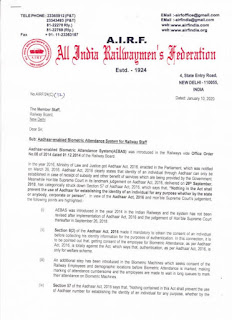Central Government Gazette Notification: Amount of monthly wages EMPLOYEES COMPENSATION ACT
S.O. 71(E). - In exercise of the powers conferred by sub-section (1B) of section 4 of the Employee’s Compensation Act, 1923
(8 of 1923) and in supersession of the notification of the Ministry of Labour and Employment issued vide number S.O. 1258
(E), dated 31st May, 2010; published in the Gazette of India, Extraordinary, Part II, Section 3, Sub-section (ii), dated
31st May, 2010, the Central Government hereby specifies, for the purposes of sub-section (1) of the said section, the
following amount as monthly wages, with effect from the date of publication of this notification in the Official Gazette,
namely:-
Also check: Guidelines for Settlement of Claims for Compensation on accidents applicable to the Department of
Public Enterprises
Section 4(1B) of the Employees’ Compensation Act, 1923 – Employees’ compensation - Amount of compensation - Amount of
monthly wages specified for purposes of section 4(1)
In exercise of the powers conferred by sub-section (1B) of section 4 of the Employees’ Compensation Act, 1923 (8 of 1923),
the Central Government hereby specifies, for the purposes of sub-section (1) of the said section,
the following amount as monthly wages, with effect from the date of publication of this notification in the Official
Gazette, namely :-
Amount of compensation.- (1) Subject to the provisions of this Act, the amount of compensation shall be as follows, namely :–
(a) where death results an from the injury : an amount equal to fifty per cent. of the monthly wages of the deceased * [employee] multiplied by the relevant factor; or an amount of * [one lakh and twenty thousand rupees], whichever is more;
(b) where permanent total disablement results from the injury : an amount equal to sixty per cent. of the monthly wages of the injured * [employee] multiplied by the relevant factor; * [one lakh and twenty thousand rupees], whichever is more;
*[Provided that the Central Government may, by notification in the Official Gazette, from time to time, enhance the amount of compensation mentioned in clauses (a) and (b).]
Explanation I. - For the purposes of clause (a) and clause (b), “relevant factor”, in relation to a * [employee] means the factor specified in the second column of Schedule IV against the entry in the first column of that Schedule specifying the number of years which are the same as the completed years of the age of the *[employee] on his last birthday immediately preceding the date on which the compensation fell due.
Sub-section (1B) of section 4 of the Employee’s Compensation Act, 1923 (8 of 1923)
*[ (1B) The Central Government may, by notification in the Official Gazette, specify, for the purposes of sub-section (I), such monthly wages in relation to an employee as it may consider necessary. ]
MINISTRY OF LABOUR AND EMPLOYMENT
NOTIFICATION
New Delhi, the 3rd January, 2020
“ Fifteen thousand rupees ”
[F. No. S-37025/03/2016-SS-I]
VIBHA BHALLA, Jt. Secy.
VIBHA BHALLA, Jt. Secy.
NOTIFICATION NO. S.O. 1258(E), DATED 31-5-2010
NOTIFICATION
EMPLOYEES COMPENSATION ACT
NOTIFICATION NO. S.O. 1258(E), DATED 31-5-2010
“ Eight thousand rupees ”
Section 4(1) (a) & (b) of the Employees’ Compensation Act, 1923Amount of compensation.- (1) Subject to the provisions of this Act, the amount of compensation shall be as follows, namely :–
(a) where death results an from the injury : an amount equal to fifty per cent. of the monthly wages of the deceased * [employee] multiplied by the relevant factor; or an amount of * [one lakh and twenty thousand rupees], whichever is more;
(b) where permanent total disablement results from the injury : an amount equal to sixty per cent. of the monthly wages of the injured * [employee] multiplied by the relevant factor; * [one lakh and twenty thousand rupees], whichever is more;
*[Provided that the Central Government may, by notification in the Official Gazette, from time to time, enhance the amount of compensation mentioned in clauses (a) and (b).]
Explanation I. - For the purposes of clause (a) and clause (b), “relevant factor”, in relation to a * [employee] means the factor specified in the second column of Schedule IV against the entry in the first column of that Schedule specifying the number of years which are the same as the completed years of the age of the *[employee] on his last birthday immediately preceding the date on which the compensation fell due.
Sub-section (1B) of section 4 of the Employee’s Compensation Act, 1923 (8 of 1923)
*[ (1B) The Central Government may, by notification in the Official Gazette, specify, for the purposes of sub-section (I), such monthly wages in relation to an employee as it may consider necessary. ]











